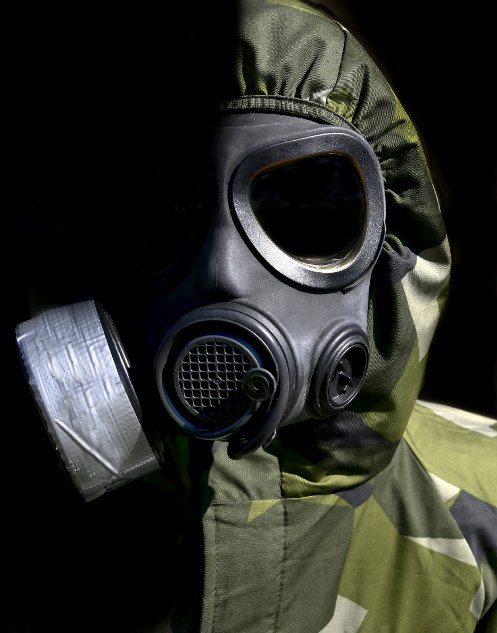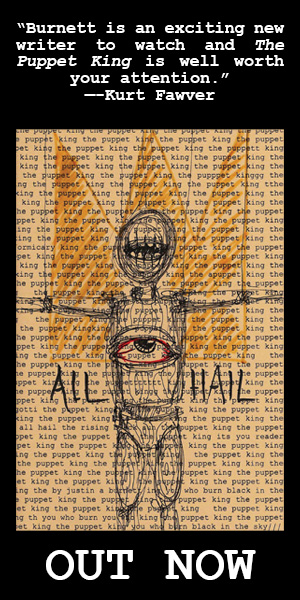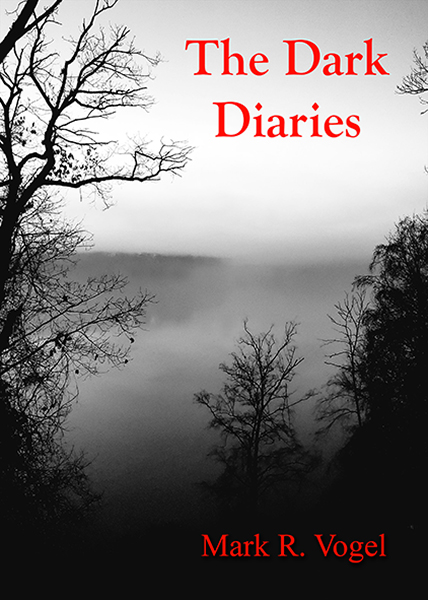Craig DiLouie is one of the horror genre’s fast rising names. His books TOOTH AND NAIL, THE INFECTION, and his latest novel THE KILLING FLOOR are slap-you-upside-the-head trips through Apocalyptic, virus-ravaged nightmares. He writes with a lyrical brutality that leaves you exhausted but always wanting more. Imagine the best parts of a Tom Clancy book mixed with Stephen King-esque horror. He is also a hell of a nice guy, kind enough to take a few minutes to talk to me.
Buy Zombie: What got you inspired to write?
Craig DiLouie: That’s a big question. Let me tell you what inspired me to write zombie fiction. I’ve always been interested in apocalyptic fiction as a reader. Back in the day, if you wanted that sort of thing you usually found it in the science fiction section in bookstores. The horror section, if there was one, was usually filled with Stephen King or your choice of sexy or funny vampires. Then I read two books–Dead City by Joe McKinney, and Autumn by David Moody. Both fascinated me in that the world has ended but there is still a very direct and terrifying threat from predators–and not the stereotypical marauding nihilistic biker gangs–in addition to the normal needs of survival. I particularly enjoyed when the scene when the police are overrun in Dead City, leaving a man torn from his duty to the public until he is focused entirely on his duty to his family. It’s still one of the most exciting scenes in zombie fiction. I enjoyed Autumn in that the zombies are pitiful, yet menacing, but the biggest action occurs on a psychological level, as the survivors try to cope with what is happening to them, and not everybody has the will to survive to the very end. After reading Autumn, I became aware of Permuted Press, as the digital revolution was democratizing the publishing industry, creating a thriving community of niche publishers. Horror publishing, including zombie fiction, was officially open for business to writers like me, satisfying widespread demand that the big publishers had completely missed out on because they are so averse to risk. At the time, I had written a psychological thriller, Paranoia, and The Great Planet Robbery, a comedic military sci fi adventure, and wanted to try my hand at this new and powerful subgenre.
So I wrote a book I always wanted to read: TOOTH AND NAIL. It focuses on a company of U.S. infantry deployed in New York during an outbreak of a rabieslike disease. It’s sort of a Custer’s Last Stand with zombies–Blackhawk Down meets 28 Days Later. What I thought was missing at the time in zombie fiction was depth of realism, and the military perspective. The result is a very realistic story that is brutally gritty and violent, with strong themes of what it means to do one’s duty even if the mission is doomed, you are fighting the people you swore to protect, and the nation you are protecting is going up in flames. After that, I signed with Permuted for two books–The Infection and The Killing Floor. The Infection is akin to The Walking Dead in its emotional depth, focusing on the psychological cost of physical survival, and asking the big questions about what it means to survive, what is there worth surviving for, and whether surviving so close to death for so long could truly be called living. It has the same grit, action and violence as Tooth and Nail, but with much greater depth in characterization, as we see these people torn from everything they love, and forced to survive in a world that looks familiar, but has become a horrifying landscape of death and threat. The Killing Floor continues the story of The Infection while focusing on additional characters and a more linear story arc. In The Killing Floor, we see the White House evacuate during the collapse, the machinery of government crammed into underground facilities at Mount Weather, the military fighting to take back Washington, DC, militias slaughtering the Infected. In a way, The Killing Floor combines the best elements of Tooth and Nail with the best of The Infection, creating a fresh and original story.
Buy Zombie: Who are your favorite genre writers? How about non-genre writers?
Craig DiLouie: I’m a strong believer that writers should always be reading, because you constantly learn about craft by reading other writers. I’ve read a ton of books, and do quickie reviews at my website at www.craigdilouie.com. Authors in the genre I particularly admire include …
… Joe McKinney for his novels dealing with police officers. When Joe brings his A game the story is tight, well crafted, exciting and populated by people I care about.
… David Moody for his originality, recreating the zombie genre with his Autumn and Hater series; his skill with sequels; and his psychological realism. He’s brave enough to show us people collapsing on the ground instead of picking up the nearest rifle and scoring headshots on their former friends and family–as that’s what most people would do in such a catastrophe.
… John Skipp for almost everything. His beautiful turns of phrase that evoke just the right image without calling too much attention to the wring, his flesh and blood characters, his original apocalyptic visions, his urgent pacing. The man’s a genius. If you’re new to Skipp, I recommend Spore, The Bridge, The Scream, The Long Last Call and Jake’s Wake.
… Conrad Williams, author of One and The Unblemished, for his brutally horrifying vision and just plain beautiful writing.
… Cormac McCarthy for his simple, spare writing style and heartbreaking depiction of the end of the world in The Road.
Here are some other works of apocalyptic fiction I particularly enjoyed, and you might too:
http://www.amazon.com/lm/R2L8ZXPACHOT5L/ref=cm_pdp_lm_title_1
Buy Zombie: What does a day in the life of Craig DiLouie look like?
Craig DiLouie: For the past 12 years I’ve maintained a very successful technical writing and marketing consulting business specializing in the electrical construction industry, so after getting up and making coffee, I head to my home office and basically work all day in my pajamas. At the end of the day, my wife and I make dinner for ourselves and our two beautiful children, and then we put them to bed. We don’t watch much TV, so we typically spend the rest of the night net surfing, working, writing, learning, talking. Throughout my routine, I’m always thinking of my next book. I don’t believe in writer’s block. When I’m not writing, I’m reading–and therefore learning about writing–or thinking about my book. It’s funny–I’m this very contented, very lucky middle-aged guy who’s only real complaint is he’s getting older, and while I’m out with the family doing something like eating at the food court at the mall, sometimes you’ll see me staring off into space, and that’s because I’m imagining something horrible happening. If you see me take a notebook out of my back pocket and write something down, it’s because I solved a problem or chanced on a really good plot twist or snatch of dialogue. By the time I’m doing writing a novel, I’ve got tons of these little notebooks filled with chicken scratch, which inform the actual writing.
Buy Zombie: What scares you?
Craig DiLouie: Anything that hurts my family, or might hurt my family, is evil. So what scares me is anybody or anything that would hurt them, from the very real threats of climate change and economic decline to the monsters that populate my fiction. So to me true horror is not zombies, but zombies taking away everything you love in the world, your entire reason for existing. That is real horror. Not being attacked, not being eaten, but losing everything you love. Yes, that scares the shit out of me.
Buy Zombie: What are your favorite zombie movies?
Craig DiLouie: Dawn of the Dead is probably my favorite, particularly the first half hour. I love the chaos and the focus on the collapse, not the aftermath. So many books and movies are basically remakes of Romero’s Night of the Living Dead–people who don’t get along are forced to fight together to survive under siege in a house, mall, etc. after the shit hits the fan. I’m always much more intrigued by the actual collapse–not a dead world, but one in its death throes. I also enjoyed Romero’s The Crazies, which I would define as a zombie movie, as I define a zombie as any person turned into a violent automaton. Otherwise, the best zombie “movie” I’ve ever seen is The Walking Dead. The series is almost perfect in its depth of characters, mercilessness towards these characters, realistic conflict, action and presentation of the zombies themselves. As with my stories, The Walking Dead brutalizes its characters, but the story always ends on a note of hope that at least some of these people might make it after all, and not just them, but the human race as a whole.
Buy Zombie: In the eternal argument of fast zombies vs. slow zombies, where do you land?
Craig DiLouie: I’ll answer that question first as a reader, then as a writer. As a reader, I like both. As long as the story is well told, with people I care about behaving realistically against truly menacing zombies or monsters in a realistic setting, I’m hooked. Whatever I’m reading or watching, it’s critical that the rules of the created universe be applied consistently. This is actually a problem with The Walking Dead, as the zombies sometimes change their behavior to fit the episode. First, they can smell you, then they can’t. They can walk fast and even jog, but then in the last episode of season 2 they can’t. Things like that jar willing suspension of disbelief, which the writer must always respect, as it’s the stuff that enables the magic of one person writing words on a piece of paper that can keep somebody up all night in a sweat. Okay, I’ve answered as a reader. Now let me answer as a writer. As a writer, I like fast zombies. The zombies in my stories are typically living people infected by some type of organism that compels them to attack others and spread the infection through biting. That to me is realistic, and frankly it’s simply scarier. With slow zombies, it’s difficult to explain how a single shambler became a global horde so fast that many zombies are still wearing their Walmart uniforms complete with nametags, and then there are annoying tropes such as zombies springing out of nowhere to deliver a bite at just the right time, or a character who slips and drops his gun so the zombie would actually have a chance to get him, and therefore be scary. That being said, there are some very good depictions of slow zombies. David Moody, Stephen Knight, Peter Clines, Joe McKinney and Timothy Long come to mind.
Buy Zombie: In your novels THE INFECTION, and its followup THE KILLING FLOOR, you begin with the standard virus-wipes-out-humanity theme, but the story slowly morphs into something more sinister and vicious. What was the inspiration behind this?
Craig DiLouie: I was writing a scene early in The Infection where our survivors fight a horde of zombies. After writing it, I thought, well, that’s it. It’s never going to get scarier than this. The reader has seen the zombies, knows the rules of how they behave according to the universe I’ve created, and therefore the rest of the book, despite any original take, will essentially be predictable. The typical alternative to shake things up is to build a lot of conflict between the survivors, or add a new human threat, such as the stereotypical sadistic biker gang. I didn’t want that (other than the refugee camp in The Infection, where the survivors, used to living on the road, are subjected to the degradations of human nature among the other refugees, ironically making them feel unsafe when they are finally removed from constant threat). In short, I wanted the threat to focus on the creature element, not people. As a result, I injected an additional threat to the characters–mutations, monsters that spawn among the Infected. It turns out Earth itself is infected with an organism whose sole purpose is to evolve new forms of life in endless competition to create the perfect life form. Humans are now part of that competition–unfortunately, somewhere at the bottom of the food chain. By incorporating the monsters, it raised the stakes of the book, made the story unpredictable, and added a horrifying, incredibly vicious new element. While this offended some purists who like their zombies dead, shambling and starring as the sole threat, most readers, from what I’ve read in reviews, enjoyed the innovation, resulting in the high level of success The Infection has enjoyed both in terms of sales and reviews.
Buy Zombie: You write with a noticeable affinity and appreciation for the Military. Is there a special meaning behind this? What kind of research is involved in your work?
Craig DiLouie: When I wrote Tooth and Nail, I wanted to realistically answer the question: What happened to the military? At that time, most stories focused on a ragtag group of people fighting to survive in a post apocalyptic world, scoring perfect headshots. Why are they succeeding when the world’s best funded, equipped and trained military failed? This question was the genesis of Tooth and Nail. To answer the question realistically, I did extensive research, and I wanted to portray the soldiers not as cannon fodder or rogue bandits, but real flesh and blood people trying to cope with notions of duty when they are fighting the people they swore to protect, why they would continue fighting for a country that is dying around them, why they would continue to serve when their families are at risk back at home, how they feel about shooting civilians, and so on. As a result, the military aspects of my novels are very well researched–you smell the smoke, gasp as your rifle jams, scream for reinforcements over the radio, panic as your unit is overrun, charge during a nighttime operation wearing night vision goggles, experience the horror of shooting dozens of people. There is something incredibly Romantic–as in stirring to the soul–about people fighting the good fight even if the nation they are fighting for is ceasing to exist–even if they are doomed. I wanted the reader to feel like they were embedded with a platoon on the front line of a zombie war, and experience firsthand the equipment, tactics, confusion, horror and triumphs of such a fight. I enjoyed the perspective so much that I included military characters both in The Infection and The Killing Floor. The Killing Floor, in particular, strongly explores the themes of whether one owes anybody else anything during the apocalypse. If most people are running and hiding, should I stay and fight? If I am a soldier or police officer, do I still have any obligation to others? If I could save the world but must give my life, should I do it?
Buy Zombie: Another theme prevalent in your books is life after the Apocalypse. Do you believe humans can survive, and ultimately thrive after a viral pandemic?
Craig DiLouie: In my stories, people are brutalized physically and emotionally, and some of them die, but at the end, there is always a sense of hope that we–that is, humanity–will survive, and that the actions each of these people take during the story may ultimately influence that chance at survival for the species. What happens after that? Endless hardship, perhaps the complete loss of our civilization, most likely. But humanity will go on, and that in itself is satisfying.
Buy Zombie: Do you have any new zombie-oriented projects coming up?
Craig DiLouie: Right now I’m working on an apocalyptic horror novel that is somewhat zombie related, but not in any traditional sense. It’s a completely original work, and quite possibly the most disturbing thing I’ve ever written. I have an agent interested, and I’m hoping this one will be published by a major publisher. Fingers crossed!
Buy Zombie: Of all the zombie movies and Apocalyptic stories out there, which do you think is the most realistic?
Craig DiLouie: There are many types of realism. The setting in Conrad William’s One is so richly rendered I could almost taste the grit from all the ash in the air. David Moody’s zombies are practically rotting off the page, and his characters behave exactly like real people. Right now I’m reading Stephen Knight’s The Rising Horde, the sequel to his The Gathering Dead, and the level of military realism is incredible. The more realistic, the deeper my suspension of disbelief, the more I can be immersed in the story, the more I like it.
Buy Zombie: You wake up tomorrow, only to find the Apocalypse has happened. Bodies line the streets and civilization is no more. What do you do?
Craig DiLouie: Whatever it takes to protect my family.





